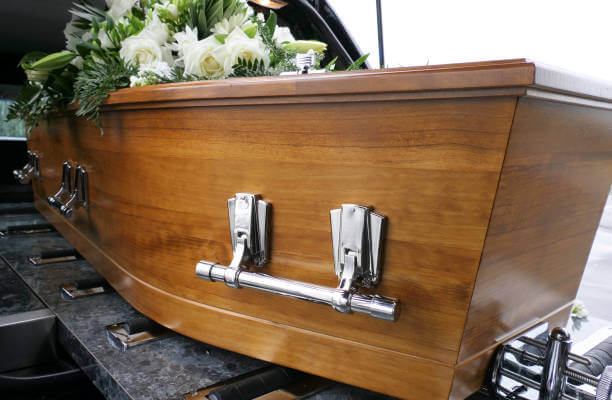Fingerprinting the deceased is a process that involves collecting the fingerprints of a person who has passed away. This practice is becoming increasingly popular among funeral homes as it offers families a way to preserve their loved one’s fingerprints for identification purposes or as a memento.
While not every funeral home provides this service, there are several ways to obtain fingerprints from the deceased, including from old documents such as passports, driver’s licenses, or police records.
The importance of collecting fingerprints before the funeral cannot be overstated, as decomposition can make accurate collection difficult or even impossible. Therefore, it is crucial to understand why and how fingerprints are taken from the deceased, and the various methods available to obtain them.
This article will explore the reasons for collecting fingerprints from the deceased, the different techniques used to obtain them, and the considerations that must be taken into account when collecting fingerprints from the deceased.
Why Take Fingerprints?
The practice of taking and keeping fingerprints of the deceased is a common courtesy offered by funeral homes, which can provide families with access to a unique form of identification that can be used for various purposes.
Fingerprints can be used to create keepsakes, such as jewelry and pendants, or to prove relation to the deceased, particularly in the absence of other forms of identification, such as a driver’s license or passport.
In some cases, fingerprints may also be used in legal proceedings, such as in cases involving the deceased’s estate or custody battles.
While there is no legal requirement for funeral homes to take fingerprints, the practice can provide families with a valuable form of identification.
Additionally, some states may require fingerprints to assign a driver’s license, and police records may have fingerprints of the deceased if they have ever dealt with the police.
It is important to note that police should remove the deceased’s fingerprints from the database after they die, but these rules aren’t always closely followed.
Overall, taking fingerprints of the deceased is a common practice that can provide families with a unique form of identification with various uses and legal implications.
How to Obtain Fingerprints
Funeral homes may offer the service of collecting fingerprints, which can be obtained from various sources such as old documents or police records, to provide families with a way to remember their loved one. If the funeral home is unable to collect fingerprints, the funeral director can put you in contact with someone who can help.
Fingerprints can also be obtained from old documents like passports and driver’s licenses. Some states require fingerprints to assign a driver’s license, and police records may have fingerprints of your loved one if they have ever dealt with the police. However, it is important to note that funeral homes are not required by law to take and keep fingerprints, and it is up to the family to decide if they want this service.
If families choose not to use the funeral home’s fingerprinting service, there are alternatives. Some companies offer fingerprinting services for the deceased, but it is important to check if they have the proper legal permissions to do so.
Additionally, fingerprints can be used to make jewelry and keepsakes of your loved one, which can be a meaningful way to remember them. It is also important to consider legal considerations when collecting fingerprints. Proof of relation to the deceased may be required to obtain a copy of their fingerprints from the funeral home, and police should remove the deceased’s fingerprints from the database after they die, but these rules aren’t always followed closely.
Ultimately, fingerprinting the deceased is a personal choice and should be carefully considered by the family.
Important Considerations
Legal regulations and ethical concerns should be taken into consideration when deciding whether or not to obtain physical identifiers of a loved one, such as fingerprints. While it is not mandatory for funeral homes to offer this service, some states require fingerprints to assign driver’s licenses. Additionally, obtaining fingerprints from old documents like passports and driver’s licenses is also an option.
It’s important to note that once fingerprints are obtained, they become part of a permanent record and must be handled with care. Legal requirements must be followed when collecting, storing, and using fingerprints, to ensure the privacy and security of the deceased’s personal information. Ethical considerations must also be taken into account, as obtaining fingerprints without the consent of the deceased or their family can be seen as a violation of privacy.
Finally, it’s important to consider the cultural and religious beliefs of the deceased and their family, as some may not want physical identifiers to be taken or kept after death.

